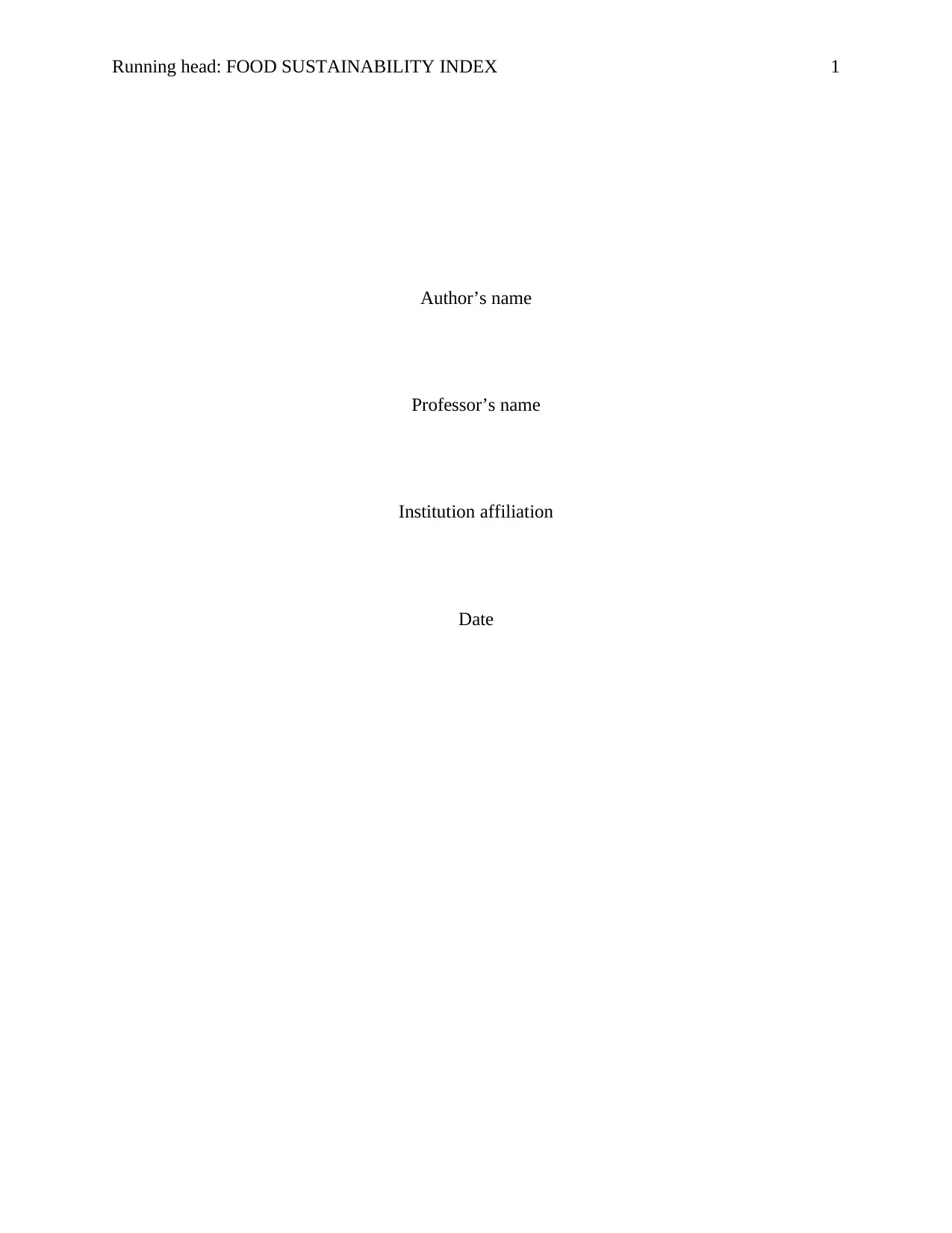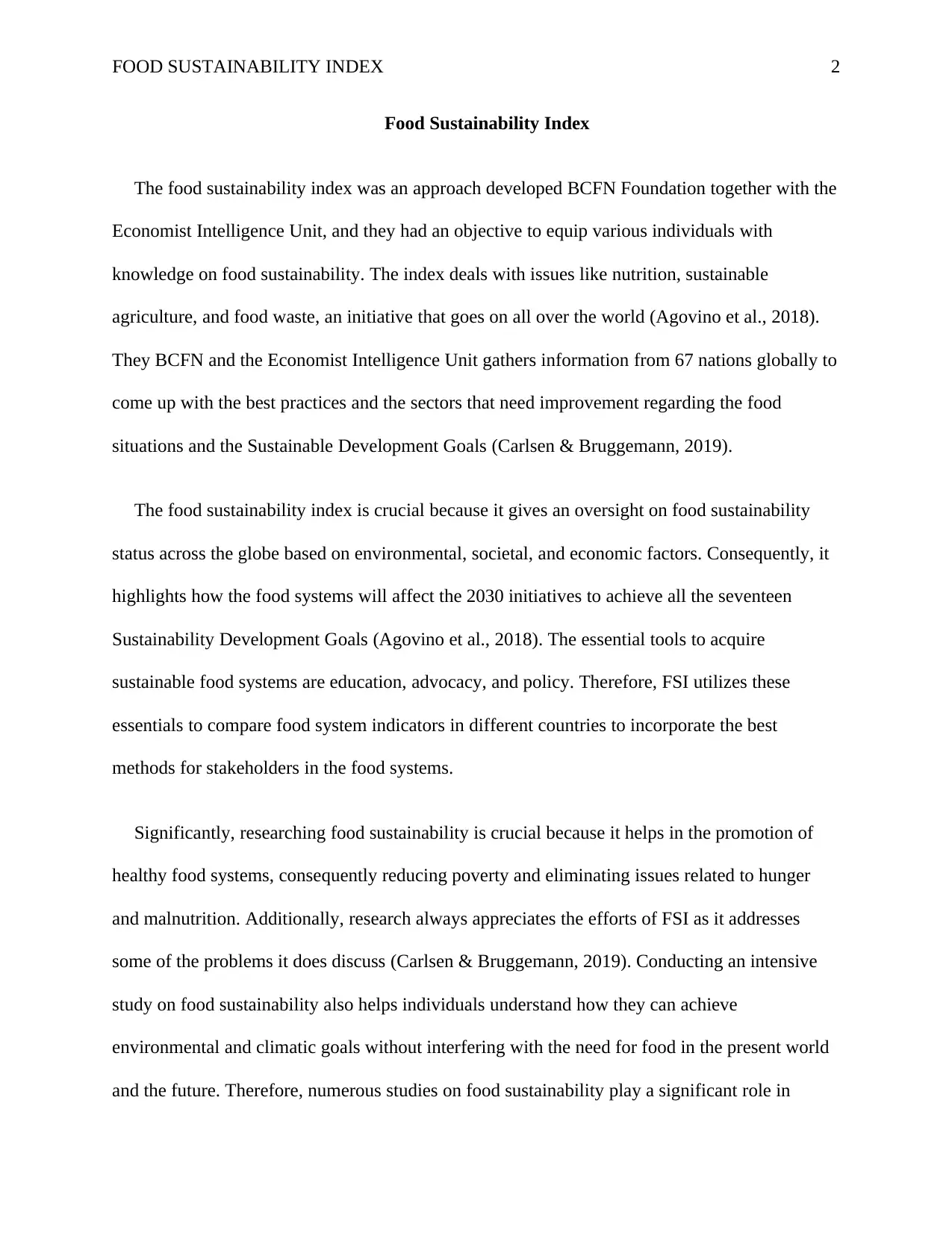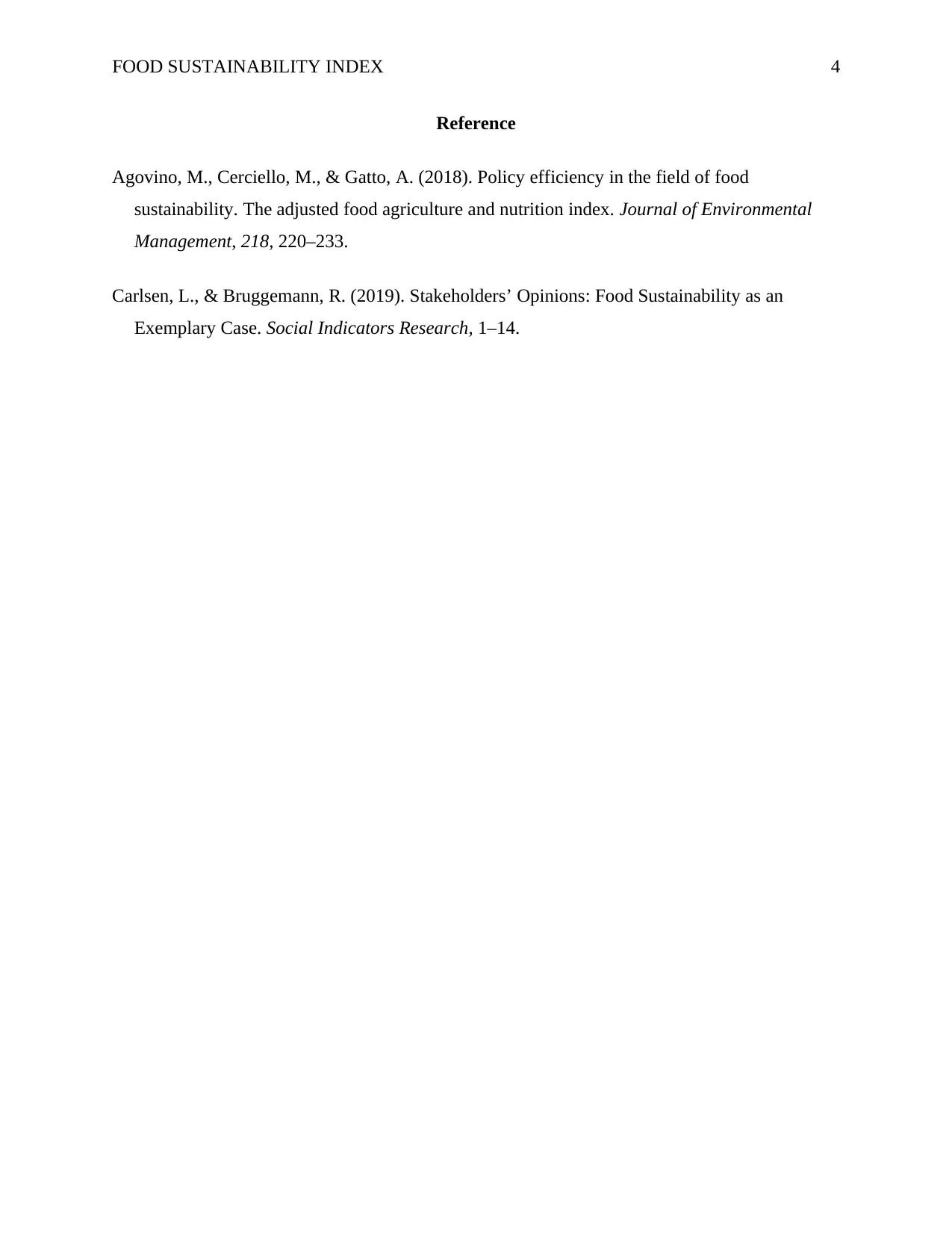Food Sustainability Index Report: Analysis and Insights
VerifiedAdded on 2022/08/02
|4
|434
|16
Report
AI Summary
This report delves into the Food Sustainability Index (FSI), exploring its role in assessing and promoting sustainable food systems globally. The FSI, developed by the BCFN Foundation and the Economist Intelligence Unit, evaluates nations based on environmental, societal, and economic factors, with a focus on sustainable agriculture, nutrition, and food waste. The report highlights the index's importance in informing the 2030 Sustainable Development Goals, emphasizing the use of education, advocacy, and policy to improve food sustainability. It also underscores the significance of research in addressing hunger, malnutrition, and environmental goals. The report references studies that support the FSI's approach to food sustainability and its impact on improving food production and quality of life for communities worldwide.
1 out of 4











![[object Object]](/_next/static/media/star-bottom.7253800d.svg)